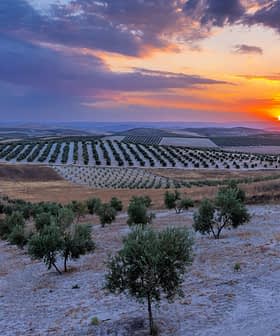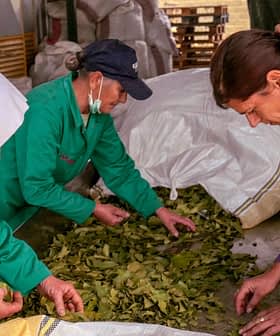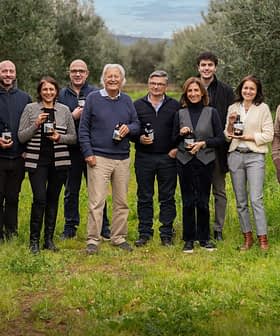Two Greek PDO Olive Oils Receive Protection in India

Two Greek extra virgin olive oils with PDO certifications, Sitia Lasithiou Kritis and Kalamata, have gained protected status in India as geographical indications. This recognition was published in the Journal of Geographical Indications of the Intellectual Property Organization of India, providing protection against imitations and misuse in the Indian market and serving as a marketing tool for Greek exports.
Two Greek extra virgin olive oils with Protected Designation of Origin (PDO) certifications from the European Union, Sitia Lasithiou Kritis and Kalamata, have been granted protected status in India after being recognized as geographical indications (GI) by the government.
The resolution was published in the Journal of Geographical Indications of the Intellectual Property Organization of India on October 31st.
Kalamata PDO olive oil is produced in the Messinia region in southwestern Peloponnese mainly from olives of the Koroneiki or the Mastoeidis variety (also known as Athinolia or Tsounati).
See Also:Europe Strengthens Rules to Protect PDO and PGI ProductsSitia Lasithiou Kritis PDO is extra virgin olive oil produced in the province of Sitia in eastern Crete exclusively from Koroneiki olives.
The two Greek olive oils are now protected from imitations and misuse of their names in the vast Indian market, while GI recognition can also serve as an important marketing tool.
The approval of the two olive oils as GIs in the South Asian country, which took more than ten years to complete, resulted from formal applications by the Messinia Union of Agricultural Associations and the Sitia Union of Agricultural Cooperatives.
“India is another major market where the union managed, after a long and demanding process, to protect its Kalamata PDO extra virgin olive oil against counterfeiting,” the Messinia Union said in an announcement.
“This protection status is of particular importance since the Indian market will be a target for Greek exports in the future,” the announcement added. “It is, therefore, a window to the future.”
Protected Designation of Origin (PDO)
A Protected Designation of Origin (PDO) is a type of geographical indication (GI) that identifies a product as originating from a specific geographical area and having qualities or characteristics that are essentially attributable to its geographical origin. The PDO designation is a legal label that is used to protect the names of products that are truly unique to a particular region.
The union also noted that it will seek protection in India for the Kalamata PDO table olives.
Both Sitita PDO and Kalamata PDO olive oils are among the four Greek olive oils that have been granted international intellectual property protection in 56 countries after being registered with the World Intellectual Property Organization (WIPO).
Consumers worldwide are increasingly interested in agricultural products and foods with specific characteristics and different geographical origins. At a global level, there are more than 10,000 protected GIs.
Regarding the penetration of olive oil in the world’s most populous country, India is still largely a virgin market; in 2022, the country imported around 13,400 tons of extra virgin and pomace olive oil, mainly from Spain and Italy.
However, as elsewhere, the rise in global olive oil prices is adversely impacting the country’s consumption of extra virgin olive oil.
“We have reduced imports of extra virgin olive oil by 30 percent and almost doubled imports of pomace [olive oil],” Dhiraj Dama, the managing director at MRK Foods, a food supplier from Mumbai, told the Times of India.
According to Rahul Upadhyay, head of the Indian Olive Association (IOA), importing olive oil in India is becoming increasingly expensive.
“Not only have the prices at source doubled over the last year, but the Euro has also appreciated by 12 to 13 percent, and we are still paying a 40 to 45 percent import duty for this higher price,” he said.
Upadhyay added that the association has called on the Indian government to reduce taxes on imported olive oil.










